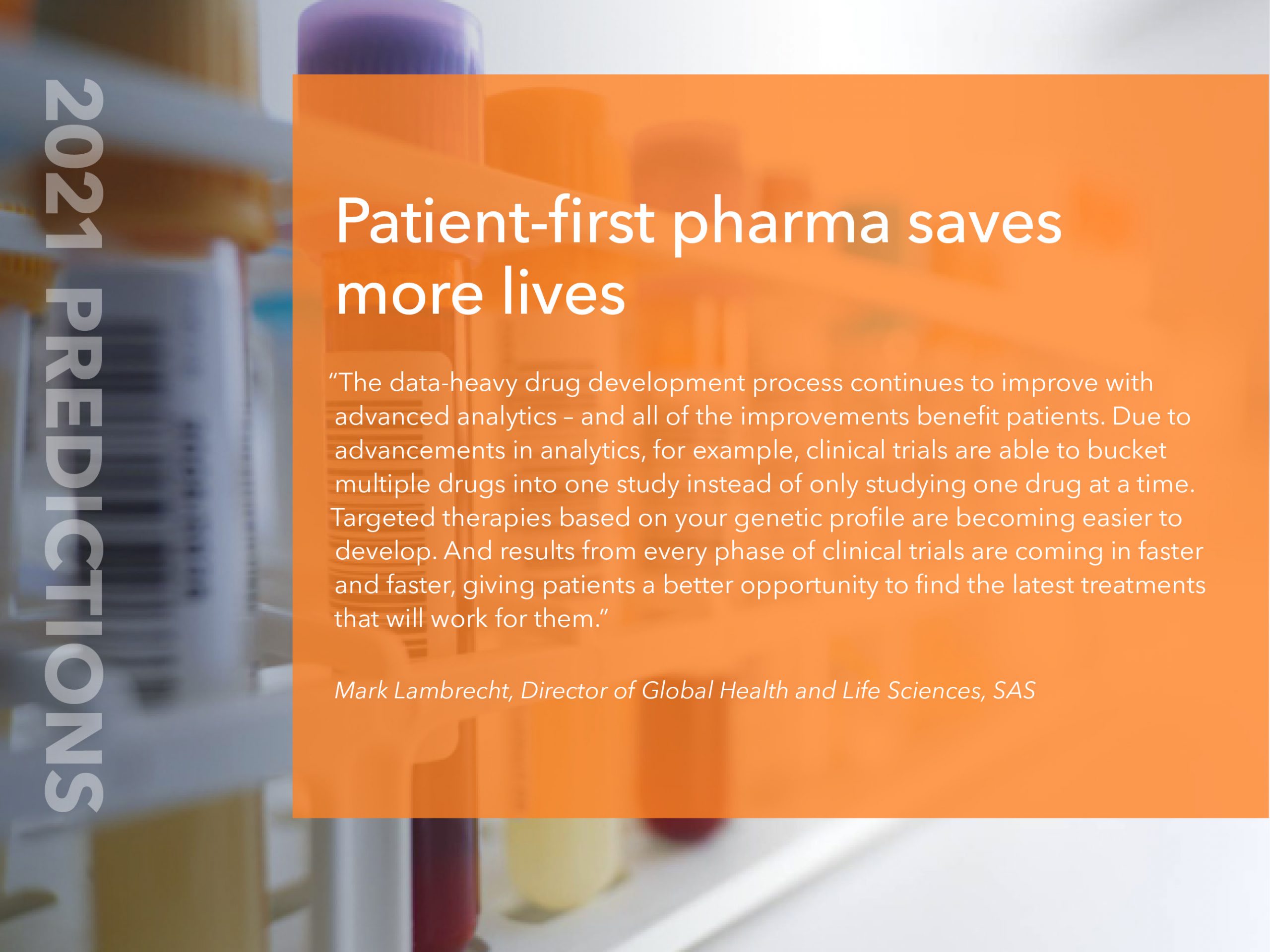
Patient-first pharma saves more lives
“The data-heavy drug development process continues to improve with advanced analytics – and all of the improvements benefit patients. Due to advancements in analytics, for example, clinical trials are able to bucket multiple drugs into one study instead of only studying one drug at a time. Targeted therapies based on your genetic profile are becoming easier to develop. And results from every phase of clinical trials are coming in faster and faster, giving patients a better opportunity to find the latest treatments that will work for them.”
Mark Lambrecht, Director of Global Health and Life Sciences, SAS

3 Comments
I agree with this 100% especially since this is the 2nd time this type of miscalculation has happened. This was the same issue with Hadoop. Hadoop wasn't initially designed or engineered to run analytics it was designed to handle traditional database type of storage, queries, reports, and applications. Then one day someone thought they could run all these systems and applications on Hadoop while at the same time run analytic workloads as well. That didn't turn out so well because the analytics needed all the compute and memory resources of the Hadoop cluster and so everything else stopped running. The same problems and challenges that IT ran into when trying to use Hadoop for what it was designed for (data compute on a big scale) and analytics at the same time are the same problems cloud architects are running into now when attempting to run everything including analytics in the same architecture/environment they are running their other workloads and processes. This approach didn't work in the past and won't work in the cloud either. Don't get me wrong you will be able to run any workload in the cloud, but to do analytics successfully you have to have data in a different format and a separate environment with more compute and memory resources then you typically need to run traditional workloads.
Thanks for a fun, informative read, Alison. Maybe you'll do a follow-up piece next January to see how these predictions held up. They seem spot-on to me, and hopeful!
It is very fun, it will be useful to us.